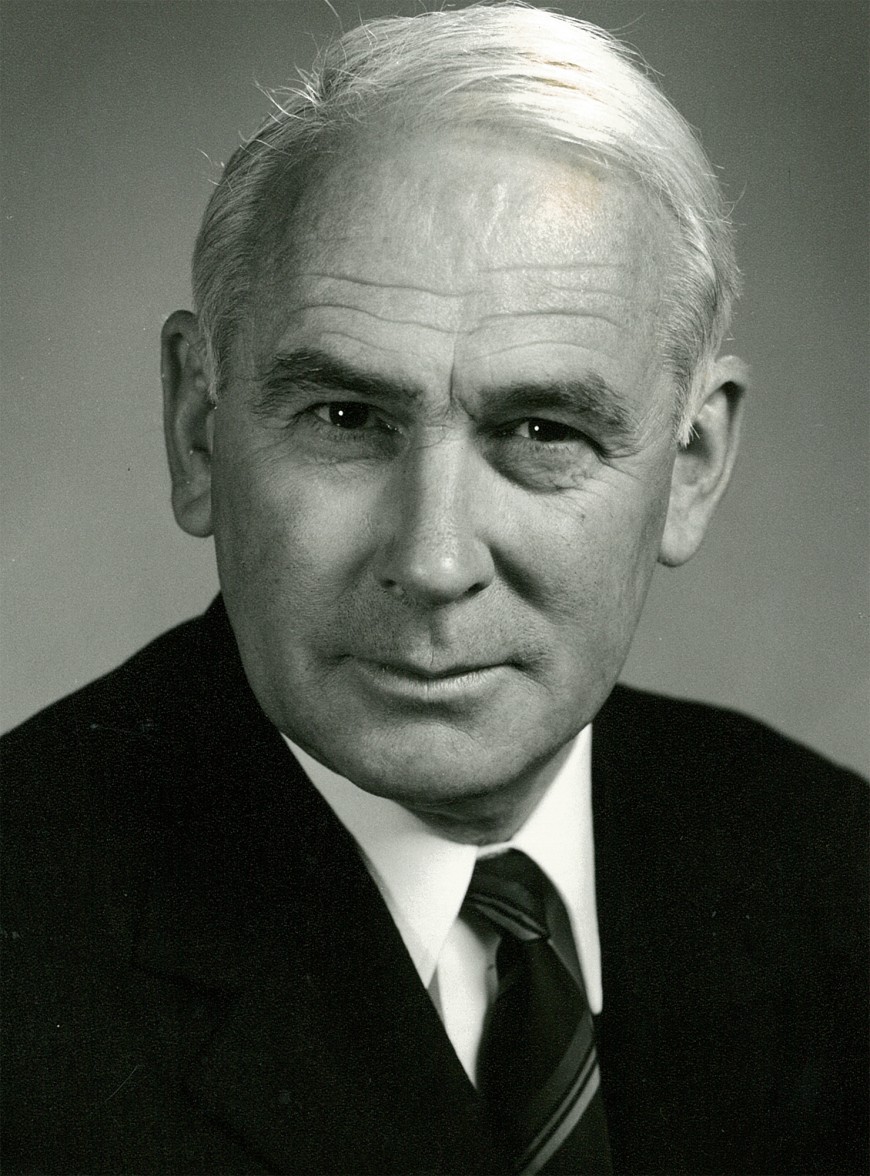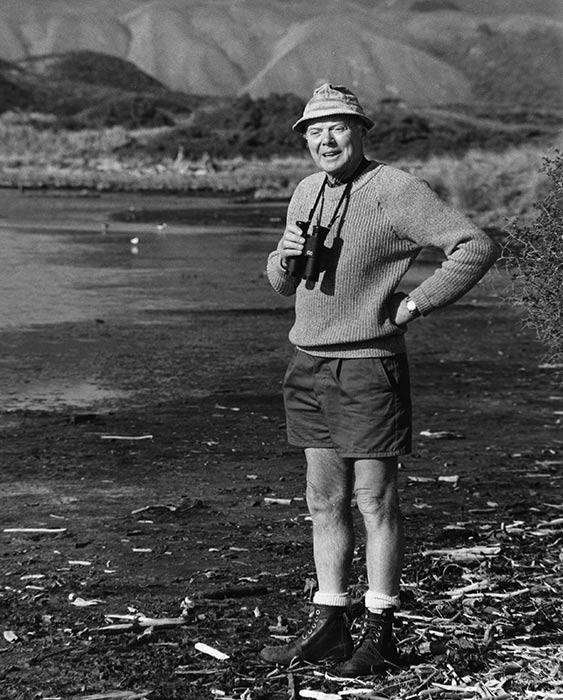The names of our buildings
In this section
-
Visiting Te Rauhītanga – The Gathering Place
- Kōwhaiwhai
- A story of Haumia Tiketike – He kōrero mō Haumia Tiketike
- A story of Rongo – He korero mō Rongo
- A story of Tāne – He kōrero mō Tāne
- Carvings – Whakairo
- The names of our buildings
- The names of our meeting rooms
- Virtual reality: Karanga a Tāne Mahuta
- Rene Orchiston Flax Collection – He Kohinga harakeke nā Rene Orchiston
- Banks and Solander prints
- Invertebrate illustrations
- Biodiversity display
- Weed and predator control display
- Land video wall
- Historic soil maps
- Soil classification illustrations
- Augmented reality sandpit
- Beech tree cores
Botanist, biographer
Eric John Godley was one of New Zealand’s leading figures in the biogeography and nature of New Zealand flora. Born on 10 May 1919 in Auckland, he was a keen plant enthusiast from childhood, deeply inspired by Darwin’s On the Origin of Species, and as a student was active in the University Field Club and Auckland Botanical Society. Eric’s studies were interrupted by World War II, and he served in the 2nd New Zealand Expeditionary Force stationed in North Africa and Italy.
Eric joined the New Zealand Department of Scientific and Industrial Research (DSIR) in 1951, initially as Senior Geneticist at the Crop Research Division, Lincoln. He became Director of that Division in 1952, but switched to Directorship of the Botany Division, Lincoln, in 1958, holding the position until his retirement in 1980.
The many topics on which he wrote and published widely, included the reproductive systems of New Zealand flowering plants; the systematics of various plant genera; the vegetation, flora, and biogeography of the southern cool temperate zone (New Zealand, subantarctic islands, southern South America); and biographies of New Zealand botanists.
Eric received several awards and honours throughout his career, including Fellow of the Royal Society of NZ, Fellow honoris causa of the Linnean Society, OBE, Loder Cup, and Hutton Medal.
Eric died on 27 June 2010 aged 91 leaving a legacy of making botanical information accessible to a broad audience.
Scientist and conservationist
Born on 9 September 1916 in Auckland, Charles developed an early interest in natural history, especially shell collecting and bird watching. He kept detailed diaries of his observations, a discipline that stood him in good stead for his later research.
Charles’s first series of scientific papers was on the birds of the Chatham Islands (1939), which remains a major contribution to knowledge in the area. World War II service as a coast watcher in the Auckland Islands inspired his master’s thesis on the prions or dove petrels, Pachyptila. The southern oceans featured in his main geological research, New Zealand’s stratigraphy and fossil Mollusca.
Charles’s research interests were wide and varied, and included the systematics and migrations of the robin family, Petroicidae, and the taxonomy and song of the cicadas.
A fierce forest conservationist, he was in the front line of the battles for the ‘Gondwanaland forests’ of Pureora and Whirinaki.
Charles Fleming was recognised for his work through numerous medals and honours, including the Hutton and Hector Medals of the Royal Society of New Zealand. He was knighted (KBE), but considered his greatest honour being elected Fellow of the Royal Society in 1967.
Sir Charles died on 11 September 1987 at the age of 71, leaving a legacy of helping so many younger scientists to realise the essential wonder of the natural sciences.

